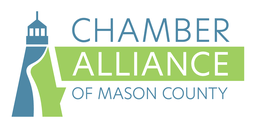Data Governance 101 for Small Businesses: Risks, Benefits, and Tools
Introduction
For small businesses, data is no longer just an administrative byproduct — it’s a strategic asset. Customer contact information, sales records, employee files, and even vendor agreements all carry value. But when data isn’t properly managed, it can quickly turn into a liability.
This is where data governance comes in. Done right, governance ensures that information is accurate, secure, and responsibly used, reducing risk and increasing trust.
What Is Data Governance?
Data governance refers to the policies, processes, and tools that define how data is collected, stored, and shared. It addresses:
• Ownership: Who is accountable for maintaining different data types.
• Access control: Who can view, edit, or delete specific records.
• Quality: Ensuring that customer, financial, or inventory data is consistent and reliable.
• Compliance: Meeting legal requirements such as GDPR, HIPAA, or CCPA.
For context, frameworks like the NIST Cybersecurity Framework provide widely accepted standards that even small organizations can adapt to scale.
Why Governance Matters for Small Businesses
Unlike large enterprises, small businesses don’t always have compliance teams. That makes simple governance structures even more critical.
Benefits include:
• Reduced risk: Minimize chances of breaches, fines, or data loss.
• Efficiency: Reliable data reduces duplicated work and reporting errors.
• Customer confidence: Transparency builds trust, especially in industries like finance and healthcare.
• Scalability: Clear policies make it easier to grow without data chaos.
Tools such as Dropbox Business offer built-in access controls and version history — simple features that serve as governance safeguards for smaller teams.
Digital Signatures as a Governance Tool
Beyond policies, small businesses also need technology to enforce governance. One example is digital signature tools.
Learning how to create a digital signature securely ensures contracts and approvals are:
• Authentic: Verified to the right person.
• Tamper-evident: Alterations are flagged.
• Traceable: Audit trails capture who signed, when, and how.
• Organized: Secure storage simplifies retrieval for audits.
For HR documents, vendor contracts, or customer agreements, signatures become a lightweight but powerful governance layer.
Governance Risks to Watch For
Small businesses often encounter similar pitfalls:
• Unstructured spreadsheets: Multiple staff editing customer data inconsistently.
• Shadow IT: Employees storing sensitive files in unauthorized apps.
• Weak credentials: Simple passwords leading to compromised systems.
• Lack of backups: Critical data lost after a crash or ransomware attack.
Password tools like Zoho Vault provide a governance-friendly way to enforce stronger access controls without overwhelming staff.
Building a Governance Checklist
Here’s a practical checklist small businesses can adopt:
✔ Accountability
Assign data owners or stewards.
✔ Access Controls
Restrict who can export or share sensitive information.
✔ Data Quality Standards
Use validation (e.g., proper email formats).
✔ Compliance Monitoring
Review practices against relevant regulations annually.
✔ Documentation
Keep policies simple and accessible to staff.
Cloud-based backup platforms such as Backblaze add resilience by making sure policies extend to storage and recovery.
Governance in Action: Common Challenges vs. Fixes
Implementation Roadmap for Small Teams
Starting governance doesn’t require enterprise-scale programs. Use a phased approach:
1. Audit data sources: Identify what you collect, where it’s stored, and who has access.
2. Set roles: Decide who maintains accuracy for customer, HR, and financial data.
3. Select tools: From CRMs to e-signature platforms, make sure technology supports governance.
4. Train staff: Communicate do’s and don’ts clearly.
5. Test recovery: Simulate backup restores to ensure processes actually work.
For regulated industries, some opt for industry-specific solutions like QuickBooks Online Advanced to combine financial governance with compliance-ready reporting.
FAQ: Data Governance for Small Businesses
Do small businesses really need governance?
Yes. Even a five-person firm collecting customer data is accountable under privacy laws.
What’s the simplest first step?
Run a data inventory. Knowing what you hold is the foundation of governance.
Is governance expensive?
Not necessarily. Affordable tools — from Google Workspace to password managers — embed governance-friendly features.
How does governance affect customer trust?
Clear privacy policies, accurate billing, and secure contracts directly shape reputation.
How often should policies be updated?
At least yearly, or whenever new regulations come into effect.
Conclusion
Data governance is no longer optional — it’s a business survival issue. For small companies, governance protects against risk, reassures customers, and creates a scalable foundation for growth.
By combining simple checklists, affordable tools, and governance-friendly platforms, small businesses can turn compliance into confidence. The best governance strategies start small but pay off big.
Discover the vibrant business community of Mason County with the Chamber Alliance of Mason County and unlock a world of networking and growth opportunities in our picturesque Northern Michigan region!
